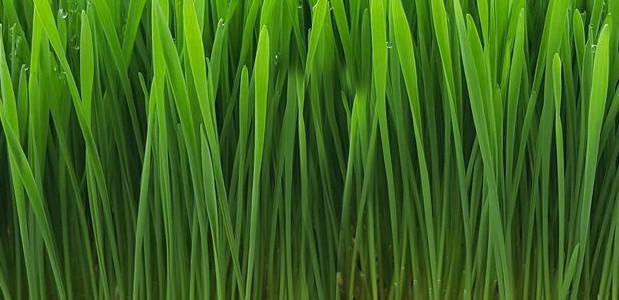-
 Turf Grass Seed Bluegrass, Bentgrass, Ryegrass, Fescues...
Turf Grass Seed Bluegrass, Bentgrass, Ryegrass, Fescues...
-
 Forage Seed Bromes, Clovers, Fescue, Wheatgrass, Legumes
Forage Seed Bromes, Clovers, Fescue, Wheatgrass, Legumes
-
 Grains Wheat Grain, Rye Grain
Grains Wheat Grain, Rye Grain
-
 Cover Crop Seed Buckwheat, Clover, Peas, Ryegrain
Cover Crop Seed Buckwheat, Clover, Peas, Ryegrain
-
 Wildflower Seed Mixtures, Singles, Annual, Perennial
Wildflower Seed Mixtures, Singles, Annual, Perennial
-
 Sprouting Seeds Fully certified Non-GMO Organic seeds for sprouts or microgreens
Sprouting Seeds Fully certified Non-GMO Organic seeds for sprouts or microgreens
Barley Non-GMO Sprouting Seed
Barley seeds can be eaten when the sprout first emerges or grown into nutritious grass microgreens and blended into juices and smoothies. This microgreen is also tasty and nutritious fodder for chickens and cats – they love it!
Seeding Rate:
Indoor: 8-12 oz./ 10”x 20” tray
Outdoor: 96-120 lbs./acre
How to Grow: Soak seeds overnight. Drain and rinse. Sow in well drained loamy soil (hydroponic or coco-coir mediums can also be used). Spread seed evenly across moist medium. Mist the seeds twice daily and cover until germinated (1-2 days). Water trays from bottom up and place under grow lights for 17 hours daily. Harvest in 6-10 days at about 4” tall. Cut with sharp knife or scissors just above soil line. The microgreens can be stored in the refrigerator in a sealed container for up to one week.
Cover Crops: Barley is also a beneficial cover crop that will increase soil fertility, quality and productivity. It aids in weed suppression and helps control pests and corrosion. One of the first crops ever cultivated by man, this nutritious cereal grain has been grown and traded for centuries. It is widely used for food, malt beverages and animal feed.
Nutritional Value: Sprouting seeds are richer in protein, folate, magnesium, phosphorus, manganese and vitamins C and K than un-sprouted plants. The vitamin and mineral content varies based on the variety of the sprouting seeds. Sprouts offer a powerful source of vitamins, minerals, antioxidants, and enzymes that fight free radicals because sprouting can increase their potency by 20 times or more.

